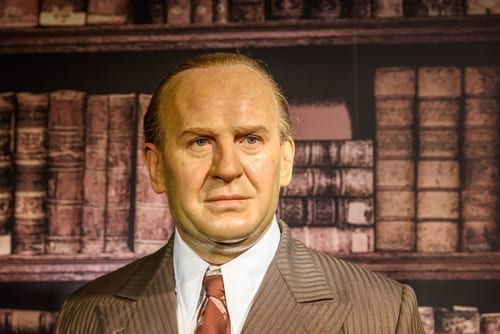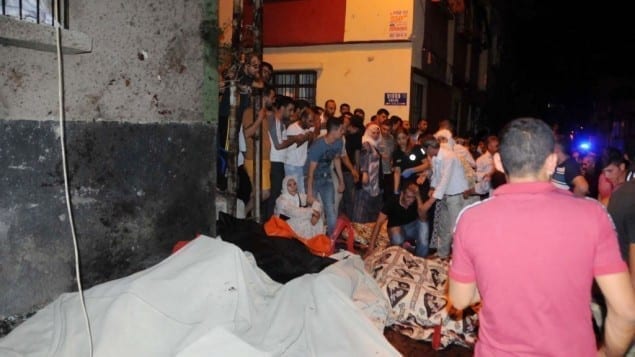In recent years it has become a popular scene for picnics, parties, and summer camps.
In 1941, 5000 Jews were imprisoned, starved and finally massacred by Lithuanian Nazi collaborators at this site in what was then the largest mass killing in the country’s history.
They were buried at the fort in mass graves that are marked by a few poles and rocks. Relatives sometimes come to light candles at the site.
In 2009, the Seventh Fort was privatized and is now owned by the Military Heritage Center — a nongovernmental association run by a 37-year-old Lithuanian, Vladimir Orlov — which charges admission fees of approximately $4 to some parts of the compound and organizes parties at the venue.
The Military Heritage Center’s website tells of the area’s Holocaust-era significance and offers, for a fee, tours of the former killing site alongside a general tour about the fort’s military history. It also has a military history museum.
In 2012, Orlov discovered the remains of thousands of Holocaust victims. He exhumed them and placed in trash bags, but the bones were reburied by the Kaunas city administration in their original resting place.
Orlov insists events are not held on the area where the Holocaust victims are buried, which he said accounts for 2 percent of the entire compound.
A groundbreaking book was written last year by Lithuanian novelist Ruta Vanagaite of Lithuanians’ complicity in the Holocaust, which had been studiously ignored by consecutive Lithuanian governments.
It triggered the first major public debate on the subject, leading to initiatives to give Lithuanian nationality to descendants of Litvak Jews, revoke state honors for collaborators and a pledge by state historians to “try to publish” this year a list of about 1,000 known Holocaust perpetrators.





